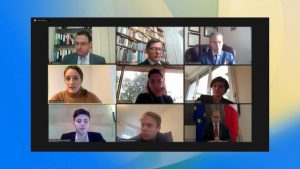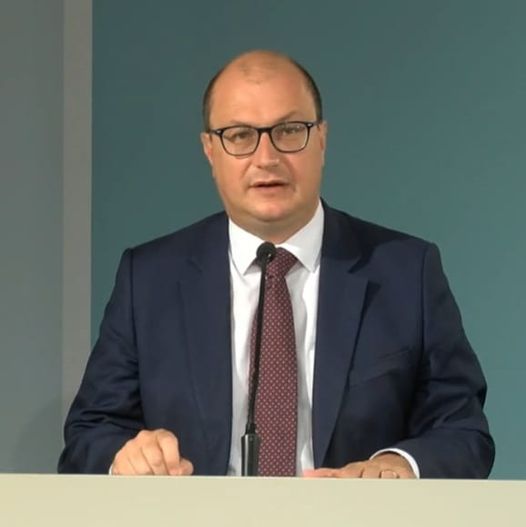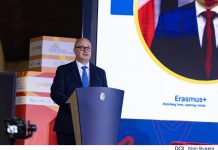The EU budget’s impact on Malta was discussed this morning in a webinar with MEPs Roberta Metsola, first Vice President of the European Parliament (EPP, MT), Alfred Sant, Head of the Maltese Delegation to the S&D group, Valerie Hayer, Own Resources co-rapporteur and EP negotiator on the EU budget (Renew, FR), and Rasmus Andresen (Greens, DE), also an EP negotiator on horizontal issues in the EU’s long term budget (MFF), together with Maltese government, Commission, and stakeholder representatives.
Stefan Zrinzo Azzopardi, Parliamentary Secretary for European Funds, emphasised that the funds from this MFF will have great importance in overcoming the challenges of the Covid-19 pandemic, to regenerate the economy, and for the challenges of the digital transition and the greening of the economy.
The in-depth discussion focused on the concept of new Own Resources, which are ways for the EU to raise its own budget without depending on contributions by Member States – and therefore on taxpayers’ money – to fund its Eur1.8bn+ budget and the debt the EU looks set to incur for its major Covid-19 recovery plan by borrowing on the financial markets for the Next Generation EU.
MEPs agreed on the need for own resources, but had differing views on new taxes to raise EU funds, with MEP Valerie Hayer (Renew, France) arguing for the need for tax harmonisation also as a way to protect SMEs and small business against corporate giants, and MEP Alfred Sant (S&D, Malta, arguing for tax transparency over tax harmonisation, to enable smaller states with smaller economies to use tax competition to attract investment.
EP Vice President Roberta Metsola (EPP, Malta) stated that “we have to ensure that the own resources decisions do not have a disproportionate impact on smaller economies such as ours. The whole Maltese delegation at the EP will be united on this.” MEP Metsola also focused on the importance of making EU funds conditional on the respect of the rule of law by Members States, stating “the EU is not an ATM”.
Climate-harming projects will be analysed and if necessary kicked-out of the EU budget, which will also aim to protect biodiversity, with up to 10% of the EU budget spending allocated to protect it by the end of the upcoming budget period in 2027, Green MEP Rasmus Andresen emphasised.
The business viewpoint and young people’s perspective were brought to centre stage by David Xuereb, President of the Chamber of Commerce, and Chiara Vassallo, President of the National Youth Council. Mr Xuereb highlighted the benefits of the various programmes and initiatives the EU has launched for pandemic recovery, a crisis which highlighted the commonalities among Member States.
For KNZ president Chiara Vassallo, the increased budget for Erasmus is a boon not only for young people but also for sectors that were hard hit by the pandemic, including the tourism sector. For the youth council, generational equality, as well gender equality, is needed in EU budget spending.
Expert viewpoints were provided by the European Commission’s Lourdes Acedo Montoya, Head of the Multiannual Financial Framework Unit in DG Budget – who highlighted that the proposed budget is a forward-looking budget that builds on the achievements of the past – and Robert Camilleri, EU budget Director in the Malta Finance Ministry, who confirmed that Malta will benefit from a reduction in the EU plastics contribution that will be introduced with the new MFF thanks to a corrective mechanism.











